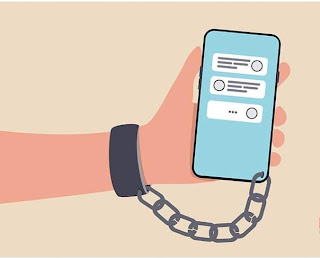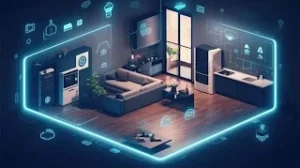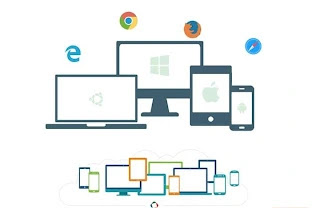Do you ever feel anxious or panic when you can’t find your phone? Does the thought of being stuck in an isolated place without internet scare you?
If so, then you must understand that you have the symptoms of ‘nomophobia’.
Nomophobia is short for “no-mobile-phone phobia”. Which means, the fear of being without a mobile phone.
Nowadays, mobile phones have become so integral to our lives that many feel anxiety, fear, or panic in their absence.
Mobile phones are now an essential part of our daily life. It is not only a means of communication, we can do many more things through it. It also supports communication, social media usage, online shopping, calendars, alarm clocks and mobile banking.
It’s true that mobile phones have many benefits, but some believe that one’s over-reliance on digital devices can turn into a form of behavioral addiction.
When we don’t have our phone with us, we feel uncomfortable, the fear of losing it also works in us. The term “nomophobia” has recently been coined to describe this fear.
Nomophobia refers not only to the fear of losing, breaking, or forgetting where the phone is, but also to the fear of being separated from the phone for even a short period of time. Phones are more important than ever to people connected to the Internet these days. So nomophobia has also become a growing concern nowadays.
This fear of being without a mobile device is often considered a symptom of excessive digital device use. Some experts believe that this problem can have a detrimental effect on mental health and well-being.
Origins Of Nomophobia
As we already know, nomophobia is short for “no-mobile-phone phobia”. The term was first used in a study in 2008, commissioned by the UK Postal Office. The study was conducted on more than 2100 adults.
The study found that 53% of the participants suffered from nomophobia. Participants only perceived this condition when their phone was lost, or the phone’s battery ran out or network coverage was not available.
Research shows that people never turn off their phones for fear of being out of touch. They don’t want to switch off the phone even at night or when they are not going to use the device. When asked the reason for not turning off the phone, 55% cited the need to maintain contact with family and friends. 10% said they had to stay in touch for various work reasons, and 9% said they became anxious when they were off the phone.
If the mobile phone is with you, people will know about any important work or information through the phone. If the phone is not with you or if the phone is switched off, there is a risk of missing important things. In order not to miss anything, that’s why people usually answer calls or messages even while doing something important.
Studies have shown that when a phone call comes, most people stop work and are ready to pick up the phone. Most people are willing to take calls while watching television, 40% answer calls or messages while eating, and 18% don’t mind taking calls even when they are on personal errands.
How Common Is Nomophobia?
Research results on nemophobia are not yet available. But what little data there is suggests that nomophobia is present in many people today. According to a study of students in India, more than 22% of participants showed symptoms of severe nomophobia. About 60% of study participants had mild symptoms of pneumophobia.
Symptoms Of Nomophobia
An irrational fear of an object or situation is called a phobia. A phobia is an anxiety disorder. Nomophobia is the fear of not having the phone with you.
Nomophobia cannot be diagnosed with any clinical test. Some common symptoms associated with this are:
- Not wanting to turn off the phone
- Constantly checking the phone for messages, emails or calls
- Charging more even after phone battery is fully charged
- Carrying the phone everywhere, even to the bathroom
- Reassure yourself by repeatedly checking that the phone is there
- Fear of not getting internet connection on phone
- Anxiety about not being able to call someone for help if something bad happens
- Experiencing monthly stress due to being absent or disconnected from online or social media
- Skipping any tasks or pre-planned events to spend time on mobile devices
In addition to mental and cognitive symptoms, some physical symptoms are also seen. Breathing may be rapid, heart rate may increase, sweating profusely, and body tremors may occur. Some may also experience light-headedness. In severe cases, this fear can even take the form of a panic attack!
Why Can’t We Live Without The Phone?
There are actually many reasons why we experience the symptoms of nomophobia.
- Benefits of mobile phones in daily life The benefits of using mobile phones are also a huge factor in nomophobia. Nowadays, people can do many tasks of daily life very easily by using mobile phones. To communicate with each other, learn about anything, conduct business, share personal information and even manage money. It may not be possible to complete these tasks without using the phone. Because of this, the fear of staying away from mobile phones works in people. Being without a phone means being completely cut off from important aspects of life, including friends, family, work, finances and information.
- Daily phone usage levels A 2014 study in the Journal of Behavioral Addictions found that college students spend about 9 hours per day on mobile phones. Researchers say people’s constant use of mobile phones represents a paradox of technology. However, excessive use of mobile phones can lead people to become dependent on them, which can lead to mental limitations and stress.
- Familiarity with technology Anxiety caused by not being exposed to mobile phones is more common in teenagers and young adults. Young people in this age group were born and raised in the age of digital technology. Introduction to computers, internet and mobile phones starts within a few years of their birth. Hence these devices become an integral part of their daily life.
Identifying Nomophobia
Nomophobia is not yet officially recognized as a disorder by the Diagnostic and Statistical Manual of Mental Disorders (DSM-5-TR).
Researchers have developed a questionnaire (NMP-Q) to diagnose and measure nomophobia. As research suggests, the questions may be a useful method of measuring fear of being without a mobile phone. The questions basically ask people to rate how much they agree or disagree with the following statement:
- “I would feel uncomfortable if I could not collect or access any information over the phone”
- “I panic when the smartphone battery runs out”
- “Feel anxious if unable to keep in touch with family or friends”
Although there is no specific treatment for nomophobia, your doctor may recommend exposure therapy, cognitive-behavioral therapy, or both to help you deal with your symptoms. In some cases, the doctor may also prescribe certain medications.
Those who showed higher levels of nomophobia also had higher levels of obsessiveness as measured by the NMP-Q. This suggests that nomophobia may be associated with other disorders.
Coping With Nomophobia
If you also have symptoms of nomophobia or feel that excessive mobile phone use is causing problems in your life, talk to a specialist.
- Exposure therapy Exposure therapy is a behavioral technique through which you gradually learn to confront the fear. In the case of nomophobia, you can gradually develop the habit of being without your phone. At first, leave the phone in another room for a certain period of time. By doing this, you can stay away from the phone even for a short period of time. Then gradually start spending more time without the phone. This may be possible if you can keep the phone off while going to the store or doing some other work.
- Cognitive-behavioral therapy Cognitive-behavioral therapy or CBT is a process that identifies your negative and irrational thought patterns. The doctor will help you identify these thoughts through cognitive-behavioral therapy. At the same time, it will help you remove these thoughts from within you and replace them with realistic and rational thoughts. For example, instead of thinking that you’ll miss something important if you don’t check your phone every few minutes, CBT will remind you that you won’t miss anything too important if you don’t check your phone every now and then.
- Medicines However, there is still no FDA (Food and Drug Administration) approved medication to treat nomophobia. However, the doctor or psychiatrist may prescribe you some anti-anxiety drugs or antidepressants. And if you realize that you have nomophobia or are spending too much time on the phone, you can take some steps yourself. For example:
- Set boundaries: Set times for personal device use. Do not use mobile at certain times of the day, such as during meals or before going to bed.
- Bring Balance: Use of mobile phones reduces our face-to-face contact with others. Start seeing someone face-to-face every day.
- Take a short break: Quitting the mobile phone habit can be difficult. However, if you change some small things in your life, it can be easy to get rid of mobile phone addiction. Leave the phone in another room during meal time or busy with some work.
- Find more ways to pass the time: Find other activities to distract yourself from the device. Keep yourself occupied by reading a book, going for a walk, playing sports or doing something you like.
Nomophobia has become a growing problem, along with other fears and behavioral addictions related to technology use. Many of us rely so much on mobile phones for work, study, news, entertainment and socializing that it can become a very complex problem.
It would not be practical to completely stop using mobile phones. However, it is also important to control your life by limiting the use of the phone.
It is necessary to take a break from the phone occasionally, focus on something other than the phone for entertainment and find other activities to keep yourself busy without spending unnecessary time on the phone.





